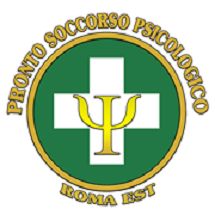
__________________________________________________
WHY IS GRATITUDE IMPORTANT FOR MENTAL HEALTH?
A. EXCUSES FOR INGRATITUDE OR UNGRATEFULNESS
If
you are looking for a reason not to be grateful, the fact is that you will
always find certain things that may seem to justify why you should not to be
grateful. There is always going to be something negative or something that's not
too good in your life or all around you.
And
that's why if you are the type of person that always dwells on what is not going
on well in your life, you will mostly end up being ungrateful, overly anxious
about your life, depressed and overall you will not experience a happy life.
The fact is:
There
will always be something that you would want to see change in your life. Either
it's an improvement you would want to see, or a certain opportunity you would
want to have, or a desire you would want to see come true, and so on. You may
want to have a better job, a more peaceful marriage and family, financial
stability, a great social life, and so on.
But
the issue with having a grateful heart has more to do with an ATTITUDE and
PERSPECTIVE with which one views life; than having to do with whether life
situations are all looking good.
B.
MEANING OF GRATITUDE
The
word "Gratitude" is derived from the Latin word "GRATIA",
which means "GRATEFULNESS or THANKFULNESS".
In
the field of neuroscience and positive psychology, GRATITUDE can simply be
defined as "a positive emotional response that we perceive on giving or
receiving a benefit from someone". This is according to Emmons &
McCullough, 2004.
They
also added that: "Gratitude is associated with a personal benefit that was
not intentionally sought after, deserved, or earned, but rather because of the
good intentions of another person."
In
simple terms gratitude has to do with a "STATE OF THANKFULNESS"
or "STATE OF BEING GRATEFUL".
We
have to understand that Gratitude is a very powerful human emotion.
C. WHY IS IT IMPORTANT TO HAVE A GRATEFUL HEART?” or
“WHY IS GRATITUDE IMPORTANT FOR MENTAL HEALTH?”
So
much research has been conducted even within the field of psychology to proof
how important GRATITUDE is. There are a number of reasons that are
evidenced-based. Today, we will just focus on the psychological reasons why
each person should endeavour to nurture a grateful heart.
Of
course, in the FIELD of POSITIVE PSYCHOLOGY, several research works have
confirmed that GRATITUDE or GRATEFUL HEART is strongly and CONSISTENTLY
associated with greater HAPPINESS.
A
research conducted by American Psychological Association indicated that higher
gratitude scores were associated with better MOOD, higher QUALITY SLEEP, more
SELF-EFFICACY, higher SELF-ESTEEM, and less INFLAMMATION.
Generally,
Gratitude helps people to feel more positive emotions, enjoy good experiences,
improve their health, deal with adversity, and build stronger relationships.
But
let me try to break them down into more specific PSYCHOLOGICAL REASONS (everything
I'm sharing is founded on empirical research studies)
1. Enhanced well-being
-
Expressing your gratitude and thanks can improve your overall sense of
well-being.
2. A grateful heart leads to STRONGER SELF-CONTROL.
-
It reduces the tendency to be AGGRESSIVE, and makes you more EMPATHIC and
UNDERSTANDING.
3. A grateful heart helps you to be OPTIMISTIC in life.
-
It makes you hope for the best, as you look in front of you and perceive your
future.
4. A grateful heart helps you to nurture a deeper and more positive relationship with others. According to Gordon (2012), Gratitude improves interpersonal relationships at home and work.
- Expressions of gratitude help in building and sustaining long-term relationships.
-
Also, Gratitude makes you a KINDER person than you used to be. Gratitude
makes a leader compassionate, considerate, empathic, and loved among others.
5. A grateful heart helps improve PHYSICAL HEALTH and MENTAL HEALTH.
- Mostly, grateful people experience fewer illnesses.
Gratitude has a way of increasing your mental strength.
6.
Gratitude builds Professional Commitment
Gratitude
has positive correlation to more Vitality, Energy and Enthusiasm to work
harder.
According
to Algoe (2012),
"Grateful
workers are more efficient, more productive and more responsible." He added
that, "Expressing gratitude in the workplace is a proactive action toward
building interpersonal bonds, and trigger feelings of closeness and bonding."
Grateful
people work happily as part of a team.
7.
Gratitude reduces TOXIC emotions such as envy, resentment, frustration,
regrets and so on.
8.
A grateful heart increases your SELF-ESTEEM, SELF-CONFIDENCE and your SELF-WORTH.
- Gratitude reduces the tendency to engage in unhealthy COMPARISON with others.
9.
Gratitude helps to RELAX you and makes you FEEL GOOD.
10. A grateful heart reduces DEPRESSION and leads to a more HAPPY life.
- The more grateful you are, the more HAPPY you will become.
11. It leads to an overall better life.
Not
only does gratitude reduce STRESS, it also helps in overcoming something as
serious as TRAUMA. Gratitude helps in dealing with all forms of ANXIETY
and GRIEF.
12. Grateful people are HEALTHIER and they SLEEP better.
- When you think about what you can be grateful for in each day, it leads
to better sleep.
13.
Ultimately, we have to understand that developing an "ATTITUDE OF GRATITUDE"
is one of the simplest ways to improve our satisfaction with life. It
leads to a happy and more fulfilling life.
Expressions
of gratitude help us deal with adversities and bounce back from them with
strength and motivation.
D. QUOTES AND FACTS ABOUT GRATITUDE
Developing
a Grateful Heart doesn't COST us any Money, and certainly it doesn't take much
time. Meanwhile it has all these amazing benefits.
"DEVELOPING
A GRATEFUL heart is the ANTIDOTE to the problems many people are going
through."
According
to the American Psychological Association, "A GRATEFUL HEART is a HEALTHIER
HEART."
Zig
Ziglag also said that "Gratitude is the HEALTHIEST of all human emotions."
It was ROBERT BRAULT who said
"Enjoy
the little things. For one day you may look back and realize they were the big
things".
I'm
sure we can all identify with that one way or the other. Thinking about
everything we can be grateful for on daily basis, is the way to go!
“EVERY
DAY, BE ON THE LOOKOUT FOR A CAUSE OR REASON TO BE GRATEFUL THAT DAY.” – Prince
Offei
There is another QUOTE that says:
"Gratitude can transform common days into Thanksgiving, turn routine
jobs into joy, and change ordinary opportunities into blessings."
E.
GRATITUDE NOTE IS VERY HELPFUL
According
to Seligman, Steen, Park, and Peterson, (2005), "Keeping a gratitude
journal causes less stress, improves the quality of sleep, and builds emotional
awareness".
Simple
practices such as keeping a gratitude journal, complimenting yourself, or
sending small tokens and thank you notes or messages, can make us feel a lot
better, and enhance our mood immediately.
AS
YOU KEEP LOOKING FOR A REASON TO BE GRATEFUL, YOU WILL ALWAYS FIND THEM ALL
AROUND YOU.
Today,
what can you be grateful for?
AUTHOR:
__________________________________________________
Work for Psychologists
We select freelance psychologists to be included as external collaborators in our international psychological first aid network already composed of 264 freelancers present in 19 countries ( Italy, United Kingdom, Hong Kong, Mexico, Russia, Argentina, Greece, Kenya, Ghana, Brazil, Portugal, Serbia, Romania, Bulgaria, Jordan, Azerbaijan, India, Spain, Switzerland ). Send the curriculum vitae to info@pronto-soccorso-psicologico-roma.it .
__________________________________________________
COPYRIGHT 2019 - 2020
STUDIO DI PSICOTERAPIA DEL DOTT. GIANNI LANARI

Piazza Sempronio Asellio 7
( fermata METRO GIULIO AGRICOLA )
ROMA
P. Iva 06019411005 - Tel. +39 0622796355
ATTENZIONE
I
componenti della rete
del progetto "Pronto Soccorso Psicologico Roma Est"
non offrono cure, supporto o consigli immediati per le persone
in una crisi suicida.
Per tale tipo di emergenza ( o in qualsiasi altro caso di
ESTREMA EMERGENZA) chiamare il 118 o il 112.
Ogni componente della rete del "Pronto Soccorso Psicologico
Roma Est" contribuisce al progetto in maniera pienamente
autonoma ed è quindi responsabile individualmente -anche sul
piano legale- del proprio operato.